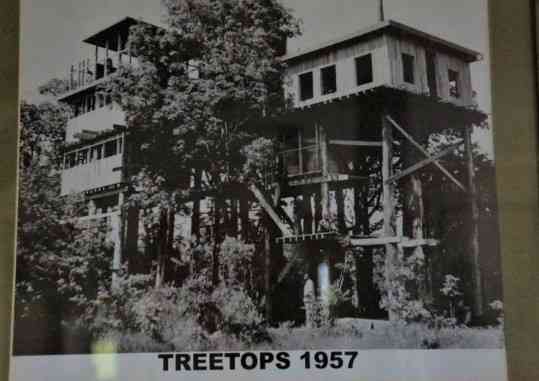
A section of Tree Top Hotel in Nyeri where the late Queen Elizabeth II spent her night in1952. [Kibata Kihu, Standard]
The Treetops Hotel in the heart of the Aberdares Forest of Central Kenya has for decades been a symbol of royalty, opulence, and the complicated history between the Kenyan highlands and the British monarchy.
The hotel became famous on February 5, 1952, when the then Princess Elizabeth visited with her husband Prince Phillip, for the night, and became Queen Elizabeth II the following day after the death of her father.
 The Standard Group Plc is a multi-media organization with investments in media
platforms spanning newspaper print
operations, television, radio broadcasting, digital and online services. The
Standard Group is recognized as a
leading multi-media house in Kenya with a key influence in matters of national
and international interest.
The Standard Group Plc is a multi-media organization with investments in media
platforms spanning newspaper print
operations, television, radio broadcasting, digital and online services. The
Standard Group is recognized as a
leading multi-media house in Kenya with a key influence in matters of national
and international interest.


